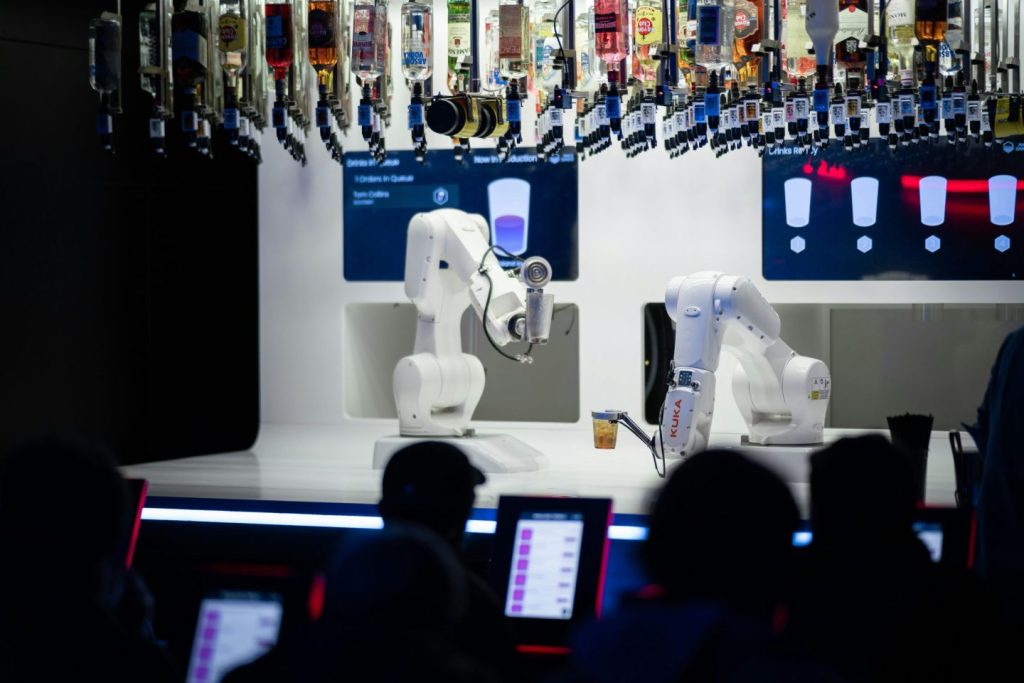Alibaba and Nvidia have teamed up again, expanding their collaboration in AI and robotics. The two companies announced at the Apsara Conference in Hangzhou that Nvidia’s embodied AI tools will be integrated into Alibaba Cloud’s machine learning platform. The move gives developers access to Nvidia’s toolkit for building AI systems that interact with the physical world, including robotics and autonomous driving.
The suite includes resources for data processing, reinforcement learning in real-world environments, and model training. For companies experimenting with robotics, autonomous vehicles, or other machines that must respond to people and their surroundings, embodied AI is becoming a core area of focus.
Building on earlier projects
This isn’t the first time the two companies have worked together at the Apsara Conference. At last year’s event, Alibaba Cloud, Nvidia, and Banma Network Technology — Alibaba’s smart cockpit solutions arm — launched a large multimodal model for automotive applications. That model was folded into Nvidia’s Drive platform, which has been adopted by Chinese electric vehicle makers including Li Auto and Great Wall Motor to power intelligent driving systems.
By returning to the stage with another joint project, the companies signalled that their partnership has moved beyond one-off collaborations. For Alibaba, it highlights the desire to anchor its AI ambitions to Nvidia’s technology, while for Nvidia, it shows the firm’s continued influence in China’s AI and robotics industries even as chip exports remain a sensitive topic between Washington and Beijing.
Industry view
While the news was not a major surprise — Nvidia has already partnered with large cloud providers such as Amazon Web Services — analysts said the move is still meaningful for China’s AI ecosystem. It offers developers access to proven technology while domestic chipmakers work to close the performance gap.
“I think what this cooperation signals is that China has more regulatory flexibility for Alibaba to promote Nvidia’s solution, which would likely require regulatory oversight given the potential domestic competition,” said Tilly Zhang, a Beijing-based tech analyst at Gavekal Dragonomics.
She explained that regulators appear to be striking a balance between protecting local industry and giving Chinese companies the best tools available to accelerate embodied AI development. “Since most Chinese chip companies are still unable to match Nvidia’s performance, this requires balancing domestic alternatives against access to the best technology to boost embodied AI growth. Regulators have chosen the latter to foster broader and stronger domestic tech development.”
Nvidia’s push in robotics
Nvidia was the biggest corporate sponsor of this year’s Apsara Conference. Deepu Talla, the company’s vice-president of robotics and edge AI, represented the firm during Wednesday’s announcement.
The partnership is timely, as several Chinese companies building humanoid and industrial robots — including Unitree Robotics, AgiBot, Galbot, Engine AI, and UBTech Robotics — are early adopters of Nvidia’s new hardware. In August, Nvidia launched the Jetson AGX Thor developer kit and production modules, compact but powerful computers designed to run advanced robotics applications. These systems can support industries ranging from manufacturing and logistics to healthcare, agriculture, and retail, giving developers a common platform to design machines capable of real-time intelligent interaction.
Alibaba’s bigger plans
The collaboration also dovetails with Alibaba’s wider AI strategy. Earlier this week, group CEO Eddie Wu Yongming, who also chairs Alibaba Cloud, said the company will raise its planned investment in AI infrastructure. The original commitment stood at 380 billion yuan (US$53 billion) over the next three years, but Wu suggested additional funds would be set aside. He did not disclose the revised figure.
That pledge was met with interest from investors. Alibaba’s stock in Hong Kong climbed 9.2 per cent to HK$174 on Wednesday, the highest close since September 2021. The jump came even as the city faced its strongest typhoon in seven years, a sign of renewed market confidence.
The rally was also helped by US investor Cathie Wood, who purchased US$16.3 million worth of Alibaba shares — her first buy of the company’s stock in four years. Her investment was seen as a sign of endorsement from one of Wall Street’s most closely watched fund managers.
Looking ahead
For now, the partnership offers Chinese AI developers more immediate access to Nvidia’s embodied AI technology, which could speed progress in fields like robotics and autonomous systems. At the same time, it underscores the choices regulators face in weighing foreign technology against support for domestic chipmakers.
As embodied AI continues to attract attention worldwide, Alibaba and Nvidia’s latest collaboration shows how global and local players remain intertwined — even in an environment shaped by trade limits and growing competition.
See also: Alibaba plans US$3.17 billion note sale to fund cloud and AI buildout


Want to learn more about Cloud Computing from industry leaders? Check out Cyber Security & Cloud Expo taking place in Amsterdam, California, and London. The comprehensive event is part of TechEx and is co-located with other leading technology events, click here for more information.
CloudTech News is powered by TechForge Media. Explore other upcoming enterprise technology events and webinars here.

